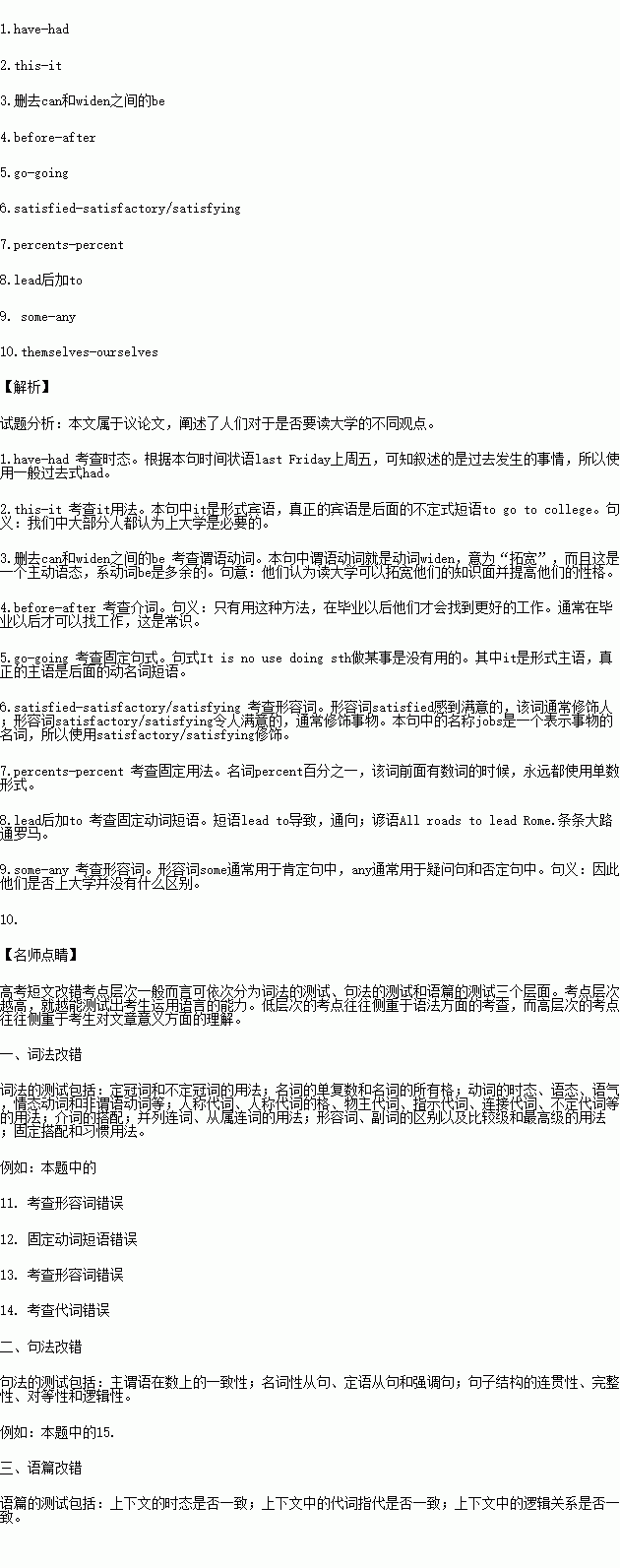题目内容
短文改错
文中共有10处语言错误,每句中最多有两处。每处错误仅涉及一个单词的增加、删除或修改。答案写在答题纸上
增加:在缺词处加一个漏字符号(∧),并在其下面写出该加的词。
删除:把多余的词用斜线〔\〕划掉。
修改:在错的词下划一横线,并在该词下面写出修改后的词。
注意: 1.每处错误及其修改均仅限一词;
2.只允许修改10处,多者(从第11处起)不计分。
Last Friday we have a discussion about whether it is the only way out for senior students to go to college. Views vary from person to person. The majority of us consider this very necessary to go to college. They think it can be widen their knowledge and improve their qualities. Only in this way can they find better jobs before graduation. Very few students think it no use go to university, because the tuition is too high for their family to afford. What’s more, it’s rather hard for college graduates to seek satisfied jobs. Thirty percents of the students, however, believe “All roads lead Rome.” Therefore, it doesn’t make some difference whether they go to college or not.
In my opinion, we can better themselves through college education so that we can serve society better in the future.
 阅读快车系列答案
阅读快车系列答案
